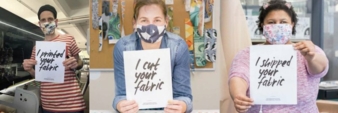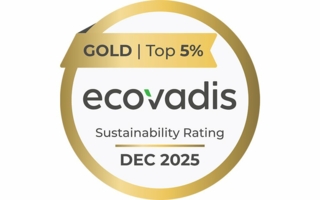18/01/2021 – Sustainability: Reshaping supply chains — auf Deutsch lesen
Kornit: Production near by the clients
Apparel brands and retailers in Europe are finding they can no longer pursue business as usual.
After decades of production leaving the West for the East, where it was cheaper and faster to employ mass production, many manufacturers are beginning the process of moving it back.
With the rise of e-commerce and social media’s influence, consumer behaviour has completely changed.
Demand is more difficult to predict, and there is an increased expectation one can access a variety of designs and have the order delivered quickly.
To effectively manage this, apparel brands and retailers must find ways to enhance the supply chain.
The first method many are embracing is reshoring (or nearshoring).
This is the process of returning the production and manufacturing of goods back to the company's original country.
The European Reshoring Monitor found that between 2014 and 2018, half of all identified reshoring took place from China, followed by India, Poland, and Germany. Around 59 percent of reshoring cases involved large companies (with more than 250 employees), while SMEs represented 41 percent of the collected cases. In 2014, 32 cases were reported, increasing to a peak of 74 in 2017, and more than 85 percent of reshoring cases occurred in manufacturing.
Reshoring offers numerous benefits:
It shortens the supply chain, enables faster time to market,
supports on-demand production,
opens up more workplaces,
and reduces pollution from aerial and maritime transportation.
Kornit’s easy-to-install solutions that deliver amazing retail quality allow true reshoring with systems that have small footprints, zero water waste, and low power consumption. Their broad systems portfolio supports any business from SMBs to very large-scale industrial operations.
Facilities today are built for mass production.
They cannot fulfil a single item order, they cannot fulfil a customized order, and they cannot fulfil orders in a timely manner. To be efficient and profitable, order quantities need to be high and the design should be ready and approved weeks in advance. Even the sampling process is long and cumbersome.
Approving a new product can take a few weeks and there is no flexibility. The production methods are not sustainable and there is high water consumption, pollution, and waste – a large carbon footprint – and it is labour-intensive, often involving subpar working conditions.
Following the initial investment, operating expenses will be significantly lower, with less labour required, less power consumption, printing on demand, no lost or wasted inventory, limitless designs, and much faster time to market. This means a fast return on investment.
Both approaches will help address the supply chain issue. Mass-market apparel brands and retailers can’t win in the next decade without speeding up and transforming to a demand-focused model closer to the consumer.
And it can be done sustainably!
Kornit’s waterless printing system, combined with the Oeko-Tex, CPSIA, GOTS compliant, eco-friendly, water-based NeoPigment ink and energy-saving process, places Kornit as the best choice for sustainable printing.
Click here to see how you could create a more effective supply chain model.




